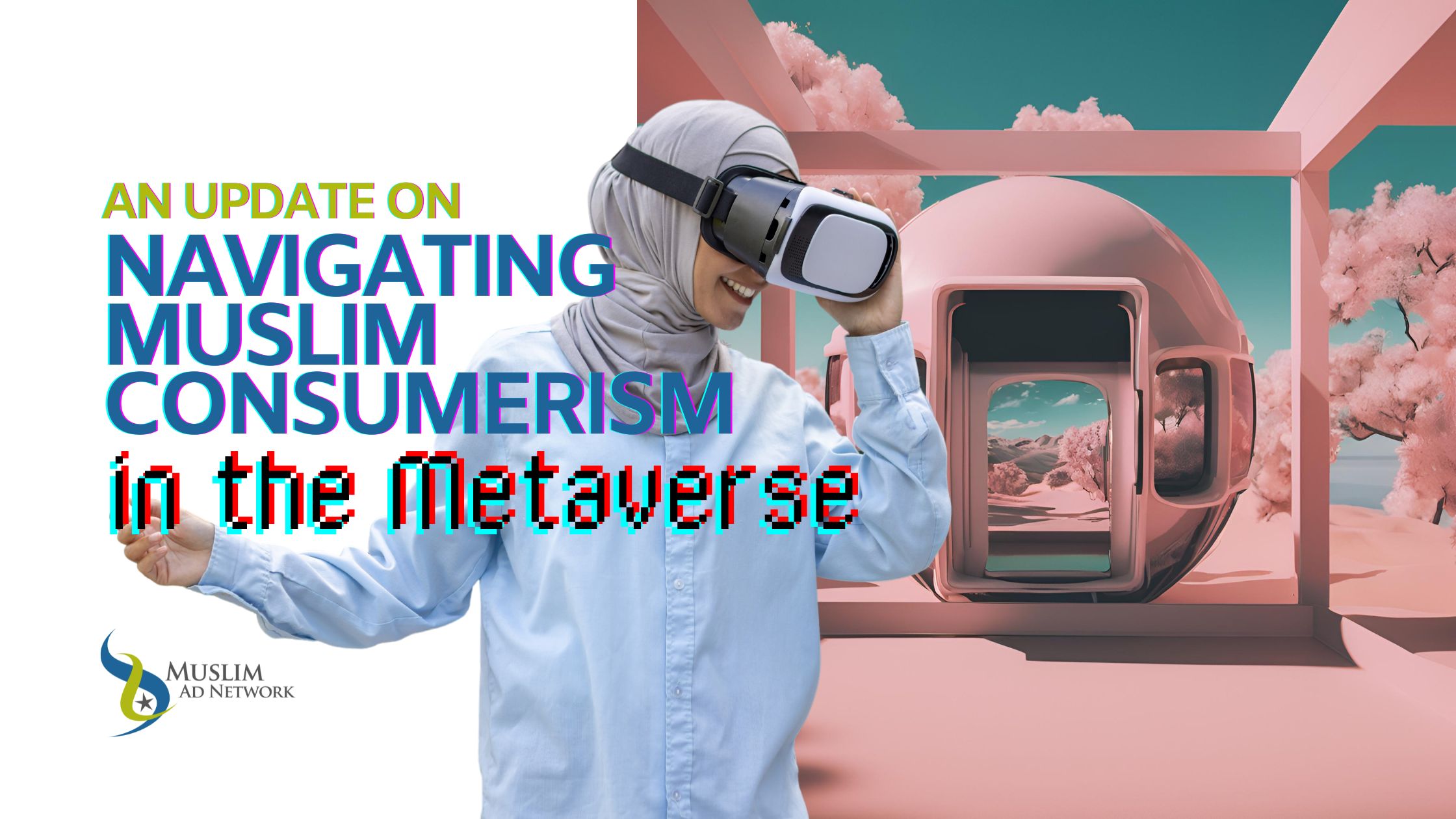
In the ultra-integrated metaverse world, the intersection of culture and commerce has led to a burgeoning interest in catering to diverse consumer preferences. Within this landscape, the rising demand for halal and Muslim-friendly products and services in Western markets presents a unique challenge. However, the amazing progress of brands now selling real-world products on platforms like Roblox highlights a promising shift toward meeting these diverse consumer needs. But your brand needs to move fast to get well-positioned to offer halal products in this realm.
Shifting Demographics and Market Demand
The demographic shift toward a younger, more diverse population is reshaping consumer behavior. Muslim millennials and Gen Z cohorts have already established themselves as influential consumers with specific preferences for halal and ethically produced goods. However, many industries have yet to fully engage these demographics. The focus is now shifting toward the emerging Gen Alpha Muslims, born after 2010, who are growing up in a digital-first world. Understanding their preferences and behaviors is crucial for brands aiming to serve this new generation effectively.
The demographic shift toward a younger, more diverse population reshapes consumer behavior. Muslim millennials and Gen Z cohorts have already established themselves as influential consumers with specific preferences for halal and ethically produced goods. However, many industries have yet to engage these demographics fully.
The focus is now shifting toward the emerging Gen Alpha Muslims, born after 2010, who are growing up in a digital-first world. Understanding their preferences and behaviors is crucial for brands aiming to serve this new generation effectively. Gen Alpha is characterized by its digital nativity, with a significant portion of its interactions and purchases occurring online. They are influenced by social media, online content creators, and digital marketing strategies.
Brands looking to engage Gen Alpha Muslims should prioritize digital engagement, authenticity, and ethical practices. This generation values transparency and social responsibility, much like their predecessors6. Additionally, they are likely to be influenced by the digital content they consume, making it essential for brands to maintain a strong online presence and engage with influencers who resonate with this demographic.
Opportunities and Challenges in the Metaverse
The metaverse presents a novel opportunity for brands to engage with young Muslim consumers. Companies like E.L.F Cosmetics and Walmart have already ventured into platforms like Roblox, creating immersive e-commerce experiences that bridge the virtual and real worlds.
For example, E.L.F Cosmetics’ virtual kiosk in Roblox allows users over 13 to purchase real-world products, blending the lines between digital interaction and physical commerce. Similarly, Walmart’s partnership with Roblox enables users to buy real-world items within the gaming platform, testing the viability of virtual shopping.
For Muslim brands, navigating the metaverse involves understanding Islamic jurisprudence concerning digital content. Islamic teachings generally prohibit the creation and depiction of animate objects, except in cases of necessity. Therefore, brands must ensure their virtual representations and content comply with these principles. This includes focusing on inanimate objects and being cautious with avatars and characters to avoid conflicts with religious guidelines.
You may also want to read: Is the Metaverse the New Online Frontier for Halal Brands?
Islamic Jurisprudence and Ethical Considerations
Disclaimer: Muslim Ad Network does not claim to have knowledge of Islamic Jurisprudence. We can only tell you about the opportunities in advertising for your brand. We do feel compelled as Muslims to make you aware of the Islamic standpoint(s) on certain methods or platforms you may want to use for your brand. This is because our motivation is to help brands grow awareness online in a halal way. However, we can only tell you the general standpoint(s) on a high level. You may need to consult people of knowledge for better decision-making.
Brands targeting Muslim consumers must be mindful of Islamic jurisprudence and ethical considerations in their marketing and product offerings. The general Islamic prohibition against depicting animate objects can extend to digital environments, impacting how brands create avatars, characters, and other digital representations. Additionally, there are strict guidelines against promoting activities or content that contradict Islamic principles, such as gambling, violence, and inappropriate behavior.
However, scholars have permitted certain exceptions for educational and developmental purposes, such as using stuffed animals and toys for children’s learning and comfort. This opens up possibilities for brands to create halal-compliant content and products that cater to younger audiences while adhering to Islamic values and advertising principles.
The Role of Advertising in Muslim Consumerism
Effective advertising is crucial for brands aiming to capture the Muslim market. Muslim Ad Network (MAN) emphasizes the need for culturally sensitive advertising that resonates with Muslim consumers’ values and lifestyles. This includes using appropriate language, avoiding controversial imagery, and highlighting halal certification and ethical production practices.
MAN also highlights the importance of leveraging digital platforms to reach younger Muslim audiences. Social media, influencer marketing, and content creation tailored to Muslim interests can significantly enhance brand visibility and engagement. Understanding the nuances of Muslim consumer behavior and preferences is key to developing successful advertising campaigns.
Consumer Protection and Ethical Marketing
Marketing to young, impressionable audiences raises significant ethical considerations, particularly in the metaverse. Your brand must balance creating engaging content with promoting responsible consumerism. This is especially important in immersive environments where gamification can significantly influence behavior. Gamification can enhance customer engagement and create enjoyable experiences, but it also has the potential to manipulate consumer behavior and encourage excessive consumption.
To address these concerns, your brand should implement parental controls and educational content to help mitigate negative effects and provide enriching experiences aligned with Muslim values. Parental controls can help monitor and restrict access to certain types of content, ensuring that young users are exposed to appropriate material. Additionally, educational content can promote responsible consumerism and digital literacy, helping young audiences understand the implications of their online interactions.
By prioritizing ethical marketing practices and responsibly leveraging technology, your brand can positively impact young Muslim consumers while respecting their values and promoting a healthy digital environment.
Conclusion
As consumer behavior continues to evolve, brands and marketers must anticipate the preferences of Gen Alpha Muslims, who are growing up with unique perspectives in a digital age. By addressing the shortcomings in engaging earlier generations and leveraging insights from ongoing studies, brands can position themselves to resonate with and serve the emerging Muslim consumer base. With a strategic approach combining cultural sensitivity, innovation, and inclusivity, businesses can foster harmonious and mutually beneficial interactions with Muslim consumers in Western markets.
[button text=”start targeting muslim consumers” color=”success” style=”shade” size=”xxlarge” animate=”blurIn” radius=”10″ depth=”4″ depth_hover=”5″ link=”https://muslimadnetwork.com/get-started/”]